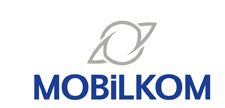Inmarsat was set up in 1979 by the International Maritime Organization (IMO) to enable ships to stay in constant touch with shore or to call for help in an emergency, no matter how far out to sea.
Today Inmarsat customers are found in many different sectors – but they are typically businesses and organisations that need to communicate where terrestrial telecom networks are unreliable or simply cannot reach.
As well as merchant shipping, Inmarsat customers include governments, airlines, the broadcast media, the oil and gas industry, mining, construction, and humanitarian aid agencies – to name just a few.
They connect to Inmarsat fleet of 13 satellites using a range of equipment, including global handheld satellite phones and notebook-size broadband internet devices, as Inmarsatll as specialist terminals and antennas fitted to ships, aircraft and road vehicles.
Inmarsat business has grown strongly since 1999 when Inmarsat became the first intergovernmental organisation to transform into a private company, later floating on the London Stock Exchange (LSE: ISAT.L) in 2005.
In fact, today Inmarsat plc is the market leader in the provision of mobile satellite services, with the largest portfolio of global satellite communications solutions and value-added services on the market. With a presence in more than 60 locations across every continent, Inmarsat world-class products, services and solutions and 24/7/365 customer support facilities are available directly from Inmarsat, or – for the majority of customers – via Inmarsat worldwide network of independent Distribution Partners (DPs) and Service Providers (SPs).
|
